Interview With Jess Moskaluke’s Manager: Mike Denney of MDM Recordings
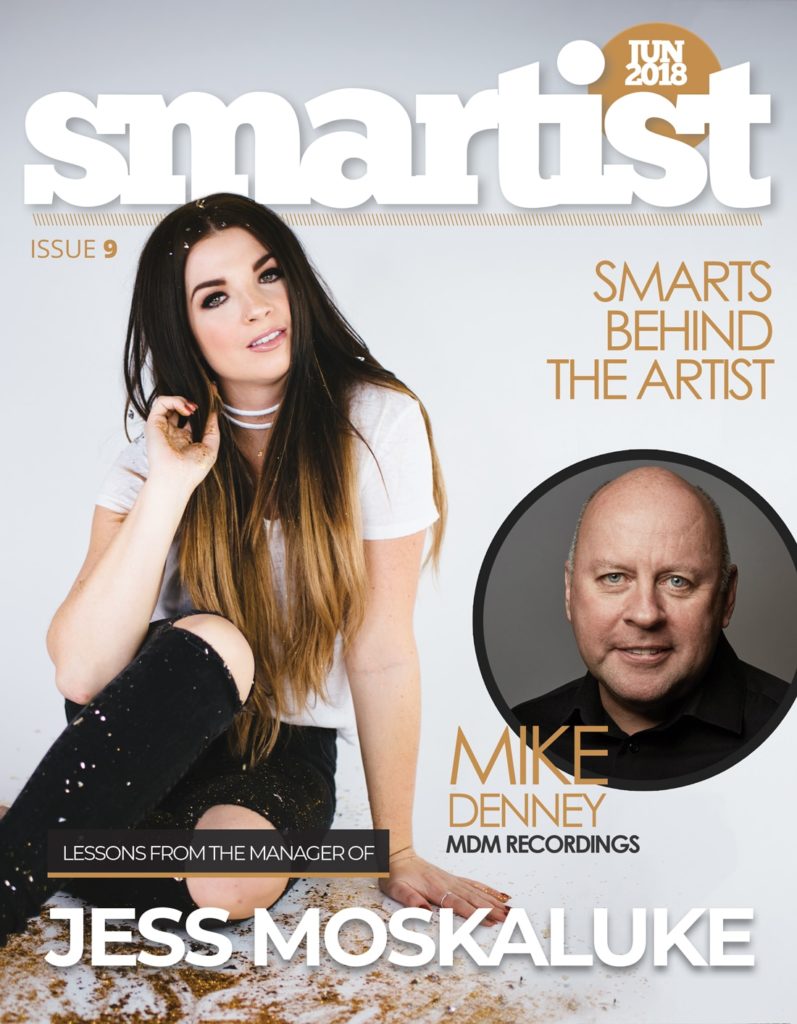
In this interview:
- How Denney started his record label, found talent, and put them “on the map”
- How he met and signed Jess Moskaluke
- His radio and festival strategy versus his touring strategy
- How he started with distribution and his new plans for International distribution
- His company structure and how his label/management deals work with his artists
- Staying connected in the business
- The biggest lessons he’s learned and advice for anyone wanting to start their own company
- And more!
[/vc_column_text][/vc_column][vc_column width=”1/3″][vc_column_text]

She is the first Canadian female country artist to have a song in the Top 5 since 2008.
Add to that, three Top 10 singles, three GOLD awards, multiple SCMA Awards, a 2017 SOCAN Award, the title of “Female Artist of the Year” at the CCMA Awards for three consecutive years, and the 2017 JUNO Award for “Country Album of the Year”.
In this June Edition of Smartist Magazine: Smarts Behind The Artists we hear from the record label exec who “discovered” and developed Jess Moskaluke into the artist she is today, Mike Denney.
MDM Recordings has been honoured two times as Record Company of the Year (2015/2016), at the Canadian Country Music Association Awards (CCMA Awards), and twice as the No. 1 Independent Record Company in Canada (2015/2016).
Founded in 2008 (and currently celebrating 10 years), by Mike Denney, who was first named Record Company Person of the Year at the CCMAs in 2014 and then took home the honours again in 2015 and 2017, MDM has close to 41 million LTD streams of their Canadian catalogue releases by artists like Bobby Wills, Chad Brownlee, Charlie Major, David James, Jess Moskaluke, Leaving Thomas, The Lovelocks, Tim Chaisson and more.
MDM currently boasts fourty Top 30 hits, sixteen Top 10 songs and close to a million spins at Country radio in Canada.
Read on for our exclusive in-depth interview with MDM Recordings Founder, Mike Denney.
Want to become a professional, sought-after artist manager? Download our free artist management start-up kit to get started today!
You got started in the business 25 years ago, how did you get started? What was your very first job?
I have always had an interest in the music industry, but I could never play, so instead I used to DJ at parties, events and weddings back home in Niagara-on-the-Lake. I was reading the want-ads one day and saw an advertisement for the Handleman Company; a merchandising company that was putting CDs into department stores and stuff like that. I applied and was hired, so that was really my first official gig, working as a merchandising rep for the Handleman Company. At that point, LPs were on their way out and CDs were just starting to come in; this was a long time ago.
Was it a position where you didn’t really need experience to get in or was it your DJ experience that led them to hire you?
It was a little bit of both. I’ve always liked music, but my father was in sales marketing and that’s kind of where my interest was too. I thought, okay, I don’t have the skills to learn how to play an instrument, I just couldn’t do it, but I wanted to marry my love of music with my abilities and interest as a sales and marketer.
Handleman had a conference that year, where each one of the major labels did a product presentation, and at that point, there were seven major labels in Canada. The last label that did a presentation was CBS Records, which was just changing over to Sony Music at that point. I met Don Oates who was the Senior VP of sales and marketing and had a conversation with him after their presentation. That was the night that I decided that I wanted to work in the music industry in a much larger capacity, and more specifically that I wanted to work with Oates at Sony Music.
It took me a while to get there, but I was eventually hired by Sony Music and within a year I was reporting to Don Oates, who wound up being a mentor to me.
You went on to work at Sony, and then you went to Universal and then you went to a distribution company, correct?
Ultimately yes, but I actually went to a company called Pindoff Record Sales which was Music World. I worked in their One Stop division, which was my first gig after Handleman. From there, I went to PolyGram Filmed Entertainment for two months, then Sony Music, followed by Universal, and then, into distribution with a distribution company.
After working at a few record labels and a distribution company, that’s when I guess you decided to start your own record label and management company?
It’s definitely what led me there. It was the height of the recession in 2008, and the bonus package I had set up with Fusion3 was on overall CD sales, not on individual artist sales. I had brought a couple of our artists into the company that did really well including jazz artist Emilie-Claire Barlow and Aaron Pritchett, who was really my first introduction into the country world. I had incorporated MDM Recording as a way to present something to my senior management at Fusion3 and say look, let me sign an artist that I believe in and put them through this company. I’ll still look after all of the international sales and marketing support, but I can make some money off of distribution of these other things which will lessen the burden, otherwise you will have got to figure out how to bonus me properly.
So, that’s what MDM started out as and when that didn’t fly, I was let go and packaged off. At that point, MDM was just a company that was set up until I figured out what my next gig was going to be. I had no idea it was going to be a label, I had no idea it was going to be a management company and I was sure pretty sure that I wasn’t an entrepreneur, but I guess I am now!
At what point did it become a full-time job for you?
Heather Ostertag, who was the president of FACTOR at the time, pushed me to go to the CCMA Awards in 2008 in Winnipeg. I was still getting phone calls from artists looking for help with sales, marketing and distribution and everything in between. I came home from that trip having signed 3 artists; Bryce Pallister, Alex J Robinson and Jo Hikk. Soon after, I had also signed Melanie Doane and Julian Austin.
The successes of Melanie and Julian helped bring in the income that I needed, so that I could start concentrating on developing artists. At that point, I wasn’t FACTOR approved; I didn’t have any extra money and I was doing production and distribution deals and utilizing the dollars that the artists were bringing in. I would design and orchestrate the strategy, but it was their money and I would just take a percentage, a 25% distribution fee.
For most of 2008 I was on unemployment insurance while I was building what would eventually become the company. Near the latter part of the year, I got a phone call from Mitch Merrett (who’s now my business partner) with demos from a kid fresh out of hockey named Chad Brownlee. He asked if I was interested and I said, “If you can convince Chad that we can heighten his career faster in the country music scene (the demos were kind of Jack Johnson-ish) then, let’s partner and I’m in.” They called me a few weeks later and said, “We are coming to Toronto, can you get some gigs set up?” I worked with FACTOR and agents and in the fall of 2009 we put out Chad’s first single. It went top 20 on December 26th I think. Back then, I was a full-time artist manager and record label.
So, basically, a year in. You went full-time.
About a year and a half, roughly eighteen months.
That is amazing.
One act is a fluke, two is the real deal. I needed to try and find that next act that would legitimize what we were doing as a label and as management company and that took a little longer. That’s when I found Jess Moskaluke on Facebook. We had previously turned down Bobby Wills because we were trying to concentrate on getting Chad off the ground, but Bobby came back around to us and we signed both of them at the same time. Which kind of put us on the map real quick.
You met Jess Moskaluke on Facebook?
Somebody had posted two videos of her way back in the day. Two early original songs, each one with a half a million views on YouTube. This was long before YouTube was the massive thing it is now. I was like, “who is this girl, who’s working with this girl?”, so I took the links and I sent it to every major label record company, every agent and every artist manager that I knew asking who was working with this girl. They all came back saying the same thing; great voice, never heard of her. So I thought, “well, I work in this business 24/7, 365 days a year, how come I don’t know who this girl is?”
I did some deep digging to figure out what her email address might be and after about 25 minutes I finally got one without a bounce-back and sent her a note with the MDM nameplate on it. I let her know we represented Chad Brownlee, and asked her who she was working with, and she replied back a day later more excited that it was Chad Brownlee’s record company than what was my interest in her. She was working with a small publishing company in Nashville, so I met with them and said I can help you in Canada; we can tap into some government money and grants, we have a good relationship with CMT, and I think I can get you some video money. We did a.license deal with 8 songs and released an EP from Jess.
Are all the artists on your roster signed to both management and label?
The short answer is yes. On the current label roster that we have, we manage them all except for Charlie Major who is a heritage act that was brought to us when we did our joint venture label deal with EMI in 2011.
When you met Jess, you signed her to management and label after discussing with her publishing company, correct?
Yes. She didn’t renew her publishing deal. We were just starting to get some tracks on the radio here in Canada. I offered her a straight up record deal for the first album “Light Up the Night” which had the single, “Cheap Wine and Cigarettes” on it. We had three of four singles off that album, and that’s kind of where it just kind of exploded on us. But we had put out four or five singles before, that didn’t impact at radio. It was me pulling together the radio people at the CCMA Awards in 2014 in a hotel room in Edmonton and saying, “You guys are going to play this girl. This girl has got something really special and you guys need to get your head around that.” And I played a new track Good Lovin’ and then, followed that up with Cheap Wine and Cigarettes.
Cheap Wine and Cigarettes has been her biggest single to date, right?
By far, yes. That track went platinum for her. She’s the first female Canadian country artist to earn a platinum single since Shania Twain.
That’s amazing. So, Chad was your first client, about 2008, 2009. And Jess was about a year later, 2010. Between the two of them — they’ve been on your roster since the beginning of MDM. What do you think has kept them working with you all this time?
We actually finished working with Chad this past October. He did four albums for us and– it was time for a change I guess. It’s hard to get into stuff like that. It’s a business at the end of the day, and he wanted to leave and see what else was out there for him.
Jess has been here for her entire recording career, in fact we’re getting ready to do a Christmas record now. I think the reason that she’s still here is that I’ve made her a business partner. She co-owns the masters with me which isn’t necessarily an opportunity she would get on any other label. She has a lot of input into her career and the direction that we go, and she loves the team. She’s had the same people working for her, with the exception of publicity, since day one. Everybody’s the same, she knows everybody, she knows what their strengths are, how the company works, how everything comes together, and she’s comfortable I think.
Generally, all indie labels have a distribution partner. How did you negotiate your distribution deal with Universal Music.
In 2011, we were approached by EMI Music Canada to do an imprint joint venture label deal. At that point country was just starting to become really popular and there were a ton of artists that were going to EMI, the smallest major, looking to get signed directly to license deals etc. We were starting to buzz a little bit with everything we were doing with Chad, Bobby and Jess and Deane Cameron and Tony Tarleton approached us about doing a joint venture label deal. We would sign artists directly to MDM Recordings, they would put an influx of cash into MDM Recordings, so that we could hire and put on retainer, the people that I needed to have a functioning label.
From there, we would artist-develop them through MDM Recordings and then, when they reached a certain point, the idea was to push them up to the major label team to have them kick it into high gear and take it to the next level. We got the deal signed and then, two months later, they were sold to Universal Music. Everything that was at EMI reverted to Universal Music and we were fortunate enough to be picked up on our option to stay with Universal. I believe we’ve redone our deal with them three times over the years, tied into distribution fees. There’s an advance against sales, and it works as well as we could hope in a major label world, in a major label concept.
How did you do your distribution before the deal with EMI?
I was with a small company called Conveyor Canada, which was distributed by Universal Music. At that time, they were a startup distribution company that had no Canadian content on it, so I said, I can bring you some CanCon that will help you set yourself up with FACTOR, and it gave me a home to start the artist development process. In hindsight, I probably could have done this deal with any of the majors, but I didn’t have anything that was making any noise at that point and I didn’t want to burn any bridges. I wanted to take it slow and steady and go that route, and so that’s what I did.
Tell us a little bit about the artist development process. You still develop artists, correct? “Leaving Thomas” would be your most recent one?
Yes, Leaving Thomas – we put out three singles and an EP with them but we are no longer working together. It’s been a hell of an eight or nine months; we finished up with them at the end of February, beginning of March. Essentially, we just ran into some issues on the business end, and had a different and varied understanding of how this business works, so we ultimately parted ways.
The current roster is Jess Moskaluke, Bobby Wills, Charlie Major, The Lovelocks, David James and a new signing, Black Mountain Whiskey Rebellion, which is my partner Mitch Merrett’s project.
We’re still very much involved in the artist development game. We have a different way of doing it than the majors; our process is a little bit slower. It’s typically a three to five-year process from the time we’ve signed an act to the point where we’re starting to see some consistent success. We do it this way, one, because we don’t have the deep pockets it takes to get an act off the ground like the majors do and two, because we’ve found that it takes that amount of time for an artist to really fall into their own respective lane and figure out exactly who they are.
I use Jess as a perfect example. If you listen to the songs we put out on Catch Me If You Can, they sound very different to what she’s putting out now in 2018 with Past the Past, Camouflage etc. The quality of the songs, honing her live performance chops, stronger songwriting; all of that which comes with going through the process with her. This is her fourth time doing it; it takes time.
Download our free artist management start-up kit!
When you first sign somebody, what would your first steps to start developing them be?
It always starts with songs, that’s step one. Step two is trying to get a handle on who these artists are as individuals because that’s as important as anything else. Do they have an understanding of the business? Do they understand how much work it’s going to be? Are they willing to put in the work necessary to help get a career off the ground? From there, it’s usually a trip down to Nashville to get them into writing rooms and see where they’re at. We’ll solicit the publishing companies in Nashville to see if we can get some songs that match up to the direction and sound of the artist. And from there, it’s getting them out on the road on a radio tour; meeting the music directors and program directors from across the country, playing them songs in the boardroom, setting up lunches and dinners, developing relationships between the artists and radio people and finally, coming up with unique ways to get in front of fans and stay top of mind. That’s what takes a while, that’s why it’s three to five years because it’s expensive and it’s hard to do.
Radio tours are very expensive. Would you put them on a radio tour to get to know the people at the radio stations before a single is released or do you wait until a single is ready to release?
A little bit of both. It depends on the artist and it depends on where they are in the whole landscape of being able to handle playing in the boardrooms to just the music director and program director. For some artists it comes naturally and others have to work harder at it; it takes a little bit longer to learn and to get comfortable in those situations, because it’s like an A&R meeting three times a day and it’s grueling. You’re on all the time, and it’s definitely not easy.
Let’s say you have the album. Everything’s ready to go, and you’re going to sit down in a marketing meeting, do you have a marketing team? How do you go about deciding what you’re going to do with that album over the next cycle?
Under the umbrella of MDM Recordings is a collection of individual contractors that make up the functioning label of MDM Recordings. When we really started to get some success with the label, I thought, I don’t want to have employees and I don’t want to structure the company that way and get into renting an office and all the rest of that stuff. When EMI invested in us, I hired the best people I was working with in the industry in each of the different areas that I needed; radio promotion, media, website design, publicity and product management, but in the early days a lot of sales and marketing strategy was coming from myself. There’s now a group of roughly 16 people that are involved in all of the strategy pieces that go into getting an album ready to go.
Each person that’s part of the MDM team is an expert in their domain and I personally work closely with Tiffany who’s kind of my right hand. She looks after all of the product and operational things that need to be done in terms of metadata and then, we will do a conference call which is typically a strategy session in terms of singles, A&R and releases and often, developing strategy of how we’re going to go about getting this artist on the radio and getting their career off the ground. There are a lot of people involved.
What would you say is your general album release structure?
If it’s a new artist, we will probably go at least three singles deep before we release the album. If it’s an artist like Jess who’s a bit more established, there are other factors that come into it. When we put out Jess’ Past the Past record this year, we wanted it released on November 3rd so it could qualify for a JUNO nomination, especially because she was coming off of winning the year before. With other artists, it’s usually two singles in and then, you’re looking to get your pre-orders set up and trying to make sure that it gets out there either in the spring or early summer, so that they have a lot of product to sell off-stage and hopefully, a single at radio that’s working.
We’ve done other things where full albums have come out in the first quarter of the year, because generally, it’s a little bit quieter then, and you can get a little bit more traction. Not only in radio but also with the digital streamers and the digital partners to be able to get more visibility for the act at that time of the year. We’re slow and steady on touring. We haven’t yet set a release up around a tour. It’s always been another reason outside of touring.
Would you usually plan to tour after the album’s made and after your marketing plan is done, or is it all kind of part of the plan as you’re planning it?
Well, touring in Canada for a country artist is tricky; it’s hard to develop the value of being able to sell hard tickets. The flip side of that is that there are numerous country festivals that happen throughout the summer. If you’re getting traction at radio, your value of what you can charge on the festival circuit will go up immensely to coincide with that, and so, when I say we won’t tour, were playing festivals throughout the summer months but it’s not a tour per say like a rock band would do where you just jump in a van and go from city to city. That generally doesn’t happen until you get to a level where you know you can put 750 to 1,500 people in a club and that’s just not an easy thing to do in this country. Usually, what you would do is either a co-headline tour or partner up with a tour that has two other acts that collectively can put those kinds of bodies into a room. It’s all got to work together and it’s expensive, but worth the investment when executed well.
When you first start with a new act, do you try and get them an agent right away or do you or does your team ever do the live bookings for them?
Most of our acts are represented by Stephanie Purificati at APA, with the exception on The Lovelocks who are with Paquin. We don’t worry about the live touring piece all that much. What we focus on is artist airplay, so we can start to create some value at that festival scene. Instead of putting an act out there at $500 a show and having them bleed money because of various touring costs, with little recognition, we’ll hold them back and won’t start to put them on festival slots until we know we’ve had some success at radio, so that we can get a little bit of a high offer somewhere in the ring — in the area of $2,500 to $3,500. It’s still not a lot of money, but the idea is that at least we can try and break even without losing money, while continuing to develop the picture at radio. Typically, as you get success on the radio, the agents phone starts to ring, which puts you in a little bit of a different place in terms of negotiating deals with them or representation, but it’s a slow and steady process. It’s part of that three to five-year plan that I was talking about.
What would your advice be for someone who wants to start a management company/record label today?
Understand what you’re getting yourself into. Understand how difficult it is to do it. Understand the financial side of the business especially if you’re running a label. It is really difficult even when you’re at the level that we’re at with solid Ontario Music Fund funding, solid FACTOR support, StarMaker support and advance against sales from our distribution partner. It is ridiculously difficult financially to keep things going, because you’re always spending out front first and there’s no guarantee that it’s going to work and that you’re going to see that money back on the back end. That’s kind of the label thing. On the artist management side, develop your network of people as much as you possibly can, so that you have that trusted group of people who can help you when you need it. That’s probably more important than anything else.
You’ve been in the business for a very long time, so, obviously, your contact book is pretty large. Today, how do you meet new people in the business?
I try to be out there as much as I possibly can. I do a ton of guest lectures, for the music industry schools and the colleges that have music programs. I try to get out to as many regional events as I possibly can like the regional award shows; I think I attend all of them except for maybe the Alberta one. You’re always meeting the next round of up and coming people. I also have memberships with the CMAO and the CCMA who do multiple events which provide networking opportunities and, not to sound overly conceited, but people tend to know me before I’ve had the chance to meet them because of social media and because we’ve had some level of success. It’s easy to find out who I am, what I look like. During a typical awards show weekend, I will have people coming up to me and introducing themselves, whether it’s artist, a new artist manager or another business person. It’s been over 30 years now that I’ve been in this business, so people just start to recognize you if that makes any sense.
What’s your biggest lesson?
I probably have a million of them, I don’t know how many you want to use. Everything I do is done first with passion, followed secondly by the understanding that the dollars will follow. I recently learned a hard lesson on the backend when I didn’t have the right contracts in place. Though I was doing my job and doing what I love to do, I ran into issues because those contracts weren’t signed. So, I guess my advice is passion over dollars, but make sure that you’ve got your contracts and your backend in line.
With the exception of this particular case, do you ever do the “dating phase” or do you usually make them sign right away?
If I don’t feel it, I won’t sign it so there’s typically a “dating phase” for a brief period. And when we do sign it, it’s always to a label deal first with the understanding that we move it into a management deal as we get further down the line. That has worked for 10 years in terms of our philosophy, and we’ll continue to work with that format.
There have been mistakes in the past, and times when things have fallen apart when we were just starting to get it off the ground, so that sucks. But it happens in the business.
Yes. A lot. What is next for MDM?
A lot of what we’re doing right now is concentrating on the international market and the international side of our business. We recently signed a deal in Australia with ABC, the Australia Broadcasting Corporation, and we’re releasing product down there now with the idea of trying to get into Australia to start touring in 2019. We started an offshoot label called acronym Records which Tony Tarleton runs. He also supports me internationally with sales and marketing distribution deals, and he just got back from The Great Escape where he had a number of label meetings, trying to get us sorted with a licensing deal for the label in the U.K., Ireland and Germany.
We signed a digital service provider agreement with a company out of Amsterdam called FUGA that looks after all of our digital releases with the label services component and that’s what I’m currently concentrating on; taking down the walls of the music industry, because we’re in truly a global industry now. There’s no borders to what we’re doing and it’s easier now to get your music out there than it has ever been. The plan is to continue to do what we can in Canada to keep our acts moving front and centre.
How do you go about getting these international distribution deals?
First, you need a body of work and some success stories to get interest from these other partners. At the end of the day, it is the music business. They’re looking to make money from your label or from your artists, and because we’ve had some major successes along the way, there’s a bit more interest in sitting down and having a conversation with us in terms of licensing deals, everyone’s expectations and whether it’s a good fit. It’s the same thing in terms of going to Nashville. Because of the 10 years of experience and successes, the door is open much further than it ever was in the early days when I was going to Nashville doing A&R meetings and trying to get artists signed to a deal. Now, I better understand the landscape and the game, but more importantly, they understand the successes that we’ve had and know that we’re in it for the long haul in terms of trying to grow and develop talent globally.
Once you find that, it’s like anything else. If it doesn’t feel right and my gut is saying no, then, I won’t do the deal. I had somebody send me a deal memo from Brazil, totally unsolicited but looking to sign all our stuff and while I haven’t turned it down yet, my gut is telling me I need more information. At the same time, it’s nice when people reach out, because they recognize the talent that we have on the label, but again, it’s a slow process.
Big thanks to Mike Denney for taking the time to share his and his artists’ stories.
Whose business do you want to know more about? Tell us at hello@smartbandmanagement.com or check out more interviews here.

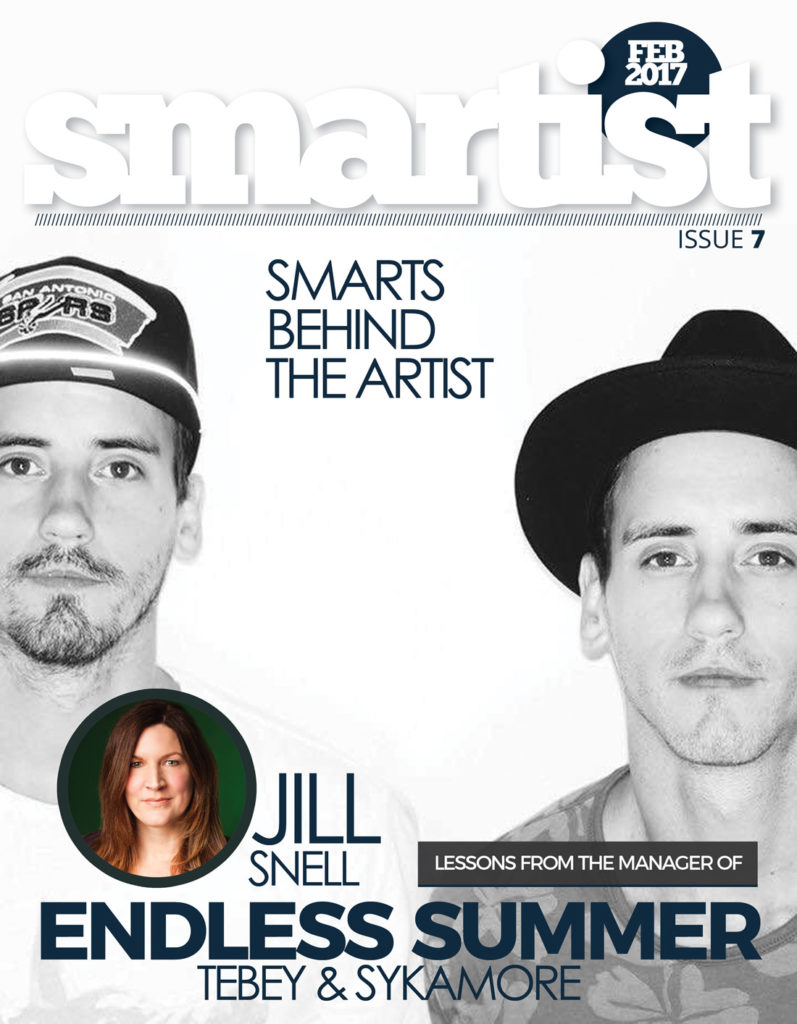
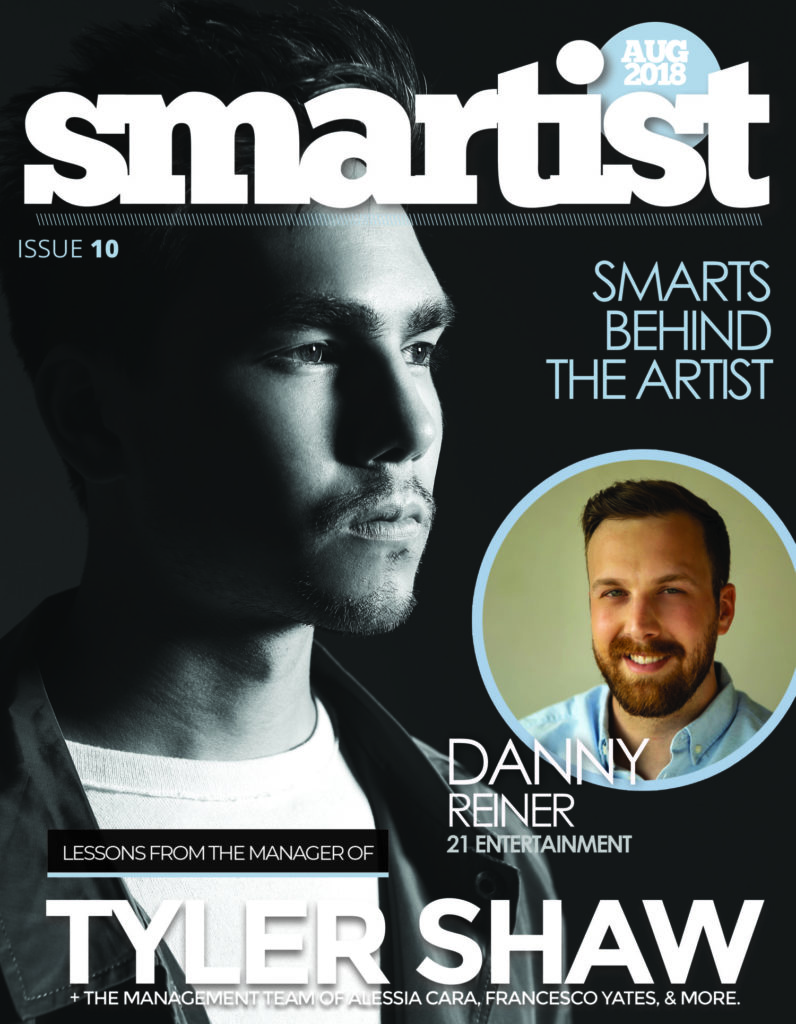
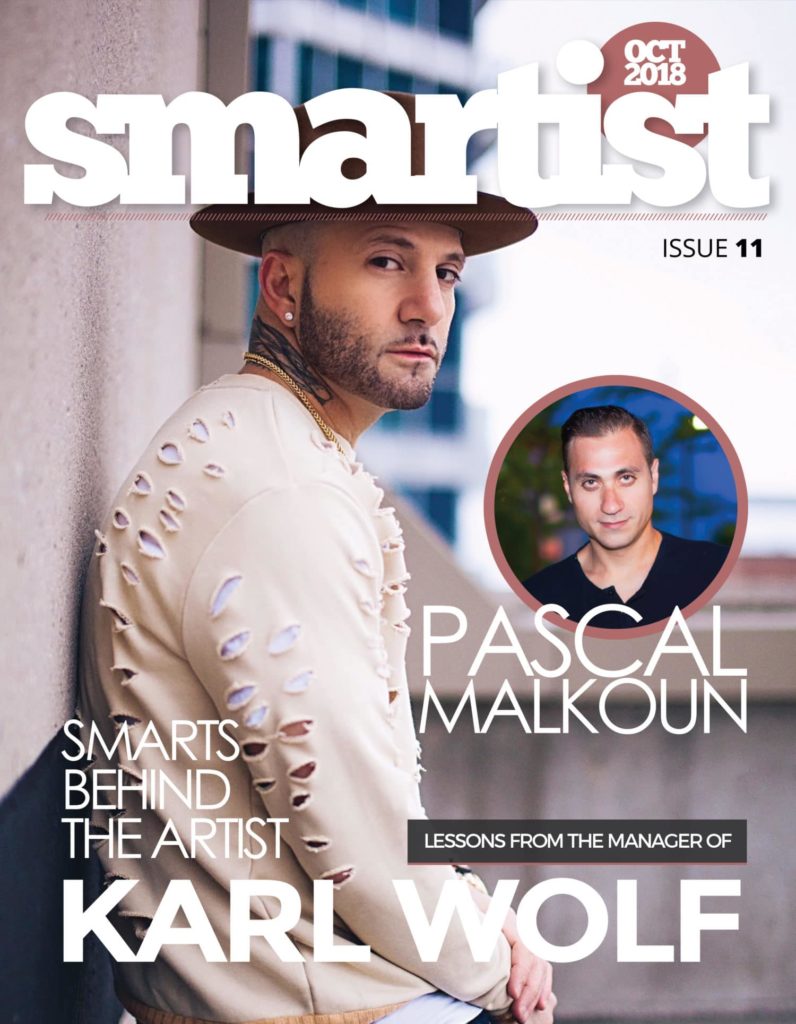
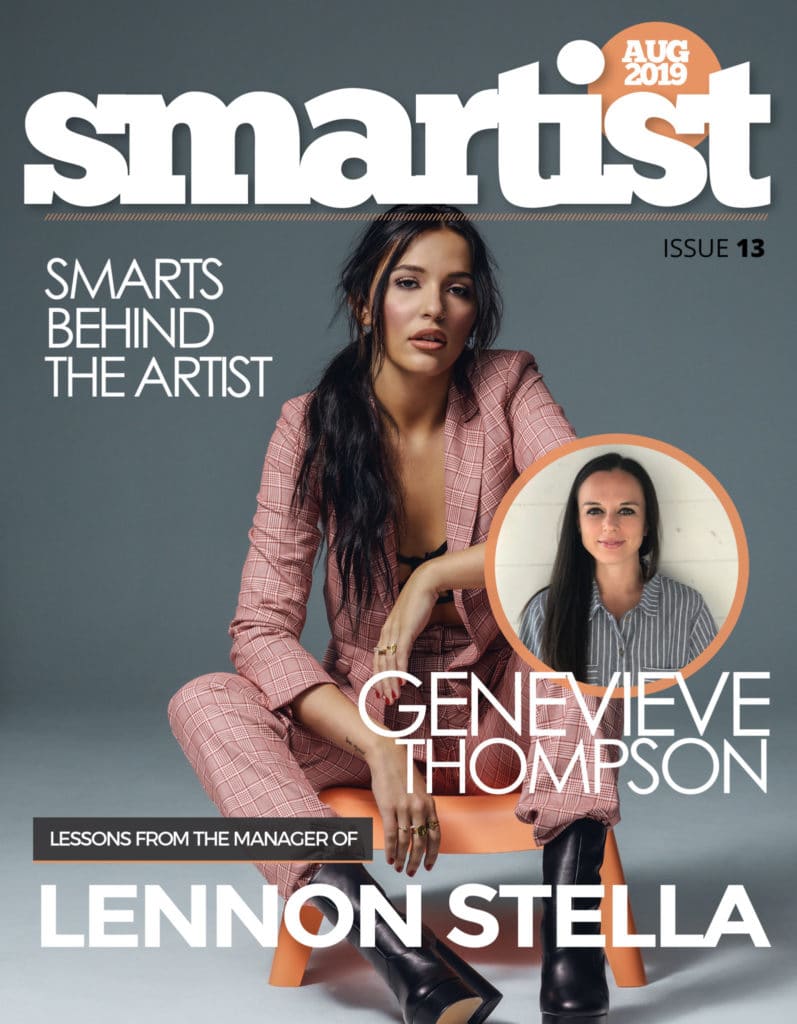
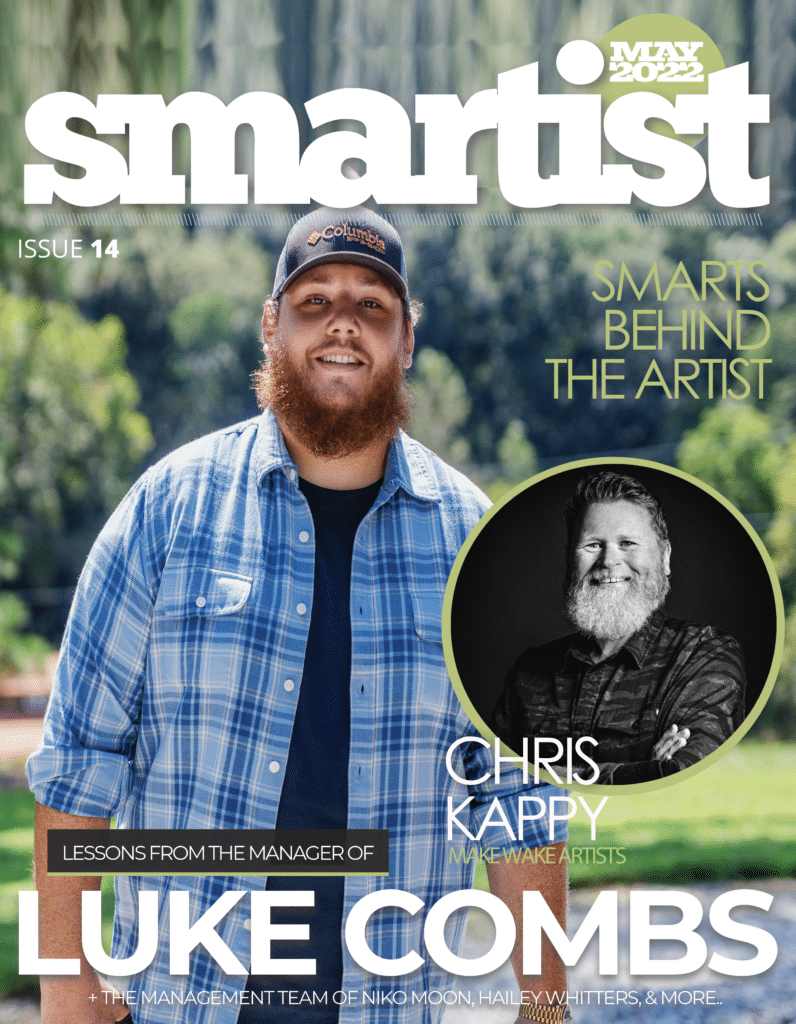
Really insightful interview! I just stumbled across this website and find a lot of the blogs and videos you post to be useful. Thanks, Jamie!